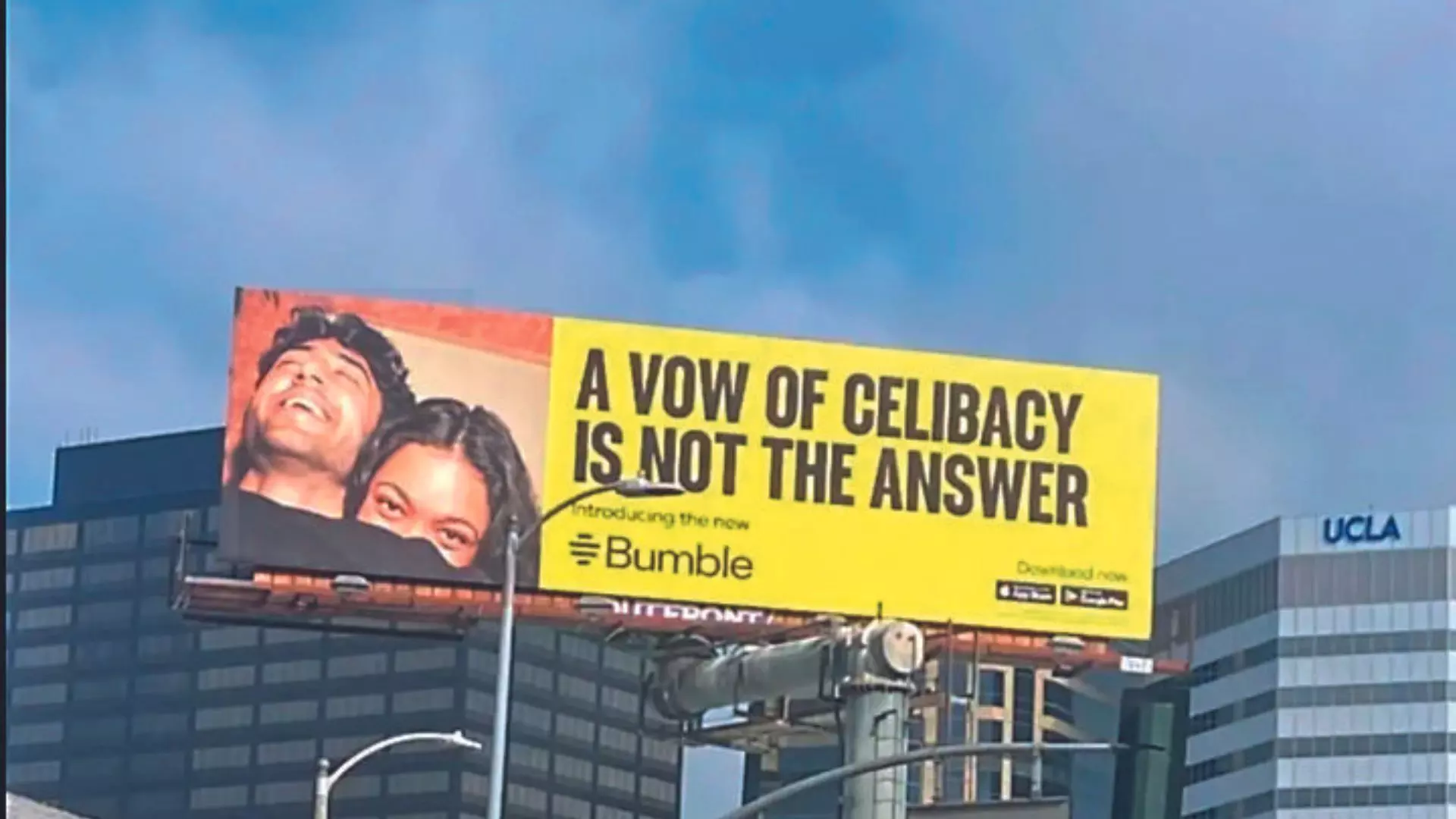Bumble fumble

Recently, Bumble came under fire for an advertisement campaign that seemed to make fun of celibacy as a substitute for dating. Signs promoting the campaign had the slogan, “You know full well that a vow of celibacy is not the answer.” Some read: “Thou shalt not abandon dating and become a nun.”
Even though Bumble later apologised, it demonstrates the mindset, and critics argue that celibacy is a purposeful decision to refrain from sexual activity and romantic involvement, which can be temporary or permanent.
Tone-deaf
Critics call the dating app’s billboard campaign “unbelievably insulting,” and argue that it indicates a misunderstanding of why women choose celibacy. Even model and actress Julia Fox responded on social media, indicating that she, too, is celibate and enjoying it: “2.5 years of celibacy and never been better tbh,” she wrote.
“A few religions emphasise that celibacy is a method to connect with the higher spirits, which does not necessarily mean that you cannot be in a relationship. As a result, celibacy is neither an antonym nor the inverse of not being in a relationship, and many people may misinterpret the ad’s claim that being celibate is negative. While some people do not wish to engage in sexual intercourse, they still seek meaningful connections with others. Thus, Bumble’s suggestion that being celibate has a negative connotation was in bad taste,” says Dr Era Dutta, consultant psychologist, TEDx speaker, and founder of Mind Wellness.
Campaign gone wrong
“The marketing strategy itself appears sound,” says Ramakanth Thumrugoti, CMD, RBC Worldwide, a branding and advertising firm. “The issue isn’t with the communication per se, except that it comes off as somewhat judgmental. Bumble’s strategy of empowering women by allowing them to make the first move aims to create a safer environment. However, the acceptance or rejection of such an approach depends on the evolving societal mindset. The company’s decision to apologise to the community reflects their need to avoid negative publicity,” he says.
No sex may be no fun
“The modern concept of celibacy, where a person feels like they don’t need a partner to have any satisfaction in their life, can work against our lives,” says Dr Charan Teja Koganti, consultant psychiatrist, KIMS Hospitals. “Sex reduces stress hormone levels and increases oxytocin, which is a hormone that promotes bonding. It also increases endorphin levels. It also increases a neurotransmitter called dopamine, which is a feel-good neurochemical,” says Dr Charan.
Bumble responds
The company apologised for the blunder on social media, days after social media users began to criticise Bumble’s new taglines online. In a statement posted to Instagram, a Bumble spokesperson says, “We made a mistake. Our ads referencing celibacy were an attempt to lean into a community frustrated by modern dating, and instead of bringing joy and humour, we unintentionally did the opposite.” “Some of the perspectives we heard were: from those who shared that celibacy is the only answer when reproductive rights are continuously restricted; from others for whom celibacy is a choice, one that we respect; and from the asexual community, for whom celibacy can have a particular meaning and importance, which should not be diminished. We are also aware that for many, celibacy may be brought on by harm or trauma.”
Dry spells
Celibacy is so appealing that even celebrities have spoken openly about their experiences with it:
Tiffany Haddish, 44, an American stand-up comedian and actress, participated on the most recent episode of the On Purpose with Jay Shetty podcast, during which the actress mentioned she has been celibate for the last several months.
Catherine Grey, the author of The Unexpected Joy of Being Single, gave up sex for a year after realising she had formed an unhealthy dependence on dating and relationships. Grey described getting rid of her dating apps to “giving up a drug.”

